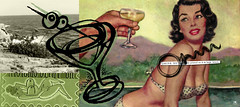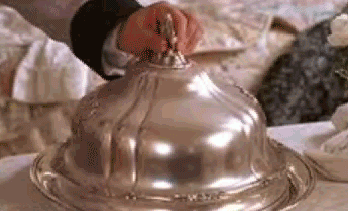Songs That Did Not Destroy Me: Part One

Well, here's the finished podcast and cover for this weeks Official HMK Mystery Stream: Episode 022: Songs That Did Not Destroy Me..
They say that music has an influence on the human psyche and I think we can all testify to that.
I've been rediscovering my vinyl collection focusing primarily on the top 100 songs of my official high school soundtrack.
What makes it interesting, to me anyway, is how just the simple beginning of a song can stir so many vivid emotions and feelings within me. Take for instance Ringo Starr's "It Don't Come Easy' (which peaked on the singles chart at #4 in both the US and the UK in 1971).
It opens with this dreamy and awesome summertime sounding guitar courtesy of Mr. George Harrison, who also wrote and produced the song with a little help from his friend Ringo.
That opening guitar sound immediately transports me to every jukebox at every pool at every KOA camp during the summer of 1971. The crazy thing is that it happens every single time! And not only that, it's to the point where I'm actually able to use it at my will as a tool to alter my mood when ever I need to escape for exactly 3:00 minutes where it's summer, somewhere in California, I'm 10 years old again hanging out at the pool and wondering whether I should get Milk Duds and a Coke with my 35 cents or pocket the dime and just get the soda...
"What seems clear is that the ability to experience and react to music is deeply embedded in the biology of the nervous system. While music tends to be processed mostly in the right hemisphere of the brain, no single set of cells is devoted to the task. Different networks of neurons are activated, depending on whether a person is listening to music or playing an instrument, and whether or not the music involves lyrics.
Specific brain disorders can affect the perception of music in very specific ways. Experiments done on epileptics decades ago showed that stimulating certain areas of the temporal lobe on both sides of the brain awakened "musical memories"--vivid re-creations of melodies that the patients had heard years earlier. Lesions in the temporal lobe can result in so-called musicogenic epilepsy, an extremely rare form of the disorder in which seizures are triggered by the sound of music. Autism offers an even greater puzzle. People with this condition are mentally deficient, yet most are proficient musicians; some are "musical savants" possessed of extraordinary talent."
Read the rest: Over Here!
Anyway, here's a bunch of songs that never fail to transport me to someplace, somewhere back in time...
HMK Mystery Stream: Episode 022: Songs That Did Not Destroy Me..
©Stay Tuned Y'all!
Migwell
This is the original intro to Episode 022 that will now be used for an upcoming episode called The Devil Made Me Do It:
The rock band Judas Priest was blamed for the suicide of two males, 18 and 20 years of age. The court found that while the music did have a “toxic influence” or a negative effect on adolescents, it could not solely be blamed for the actions of the youths (Litman & Farberow, 1994).
Produced in conjunction with iF: Irregular Frequency, Totally Bitchin' Recording and ©SharkThang. A Podcast of sorts


















